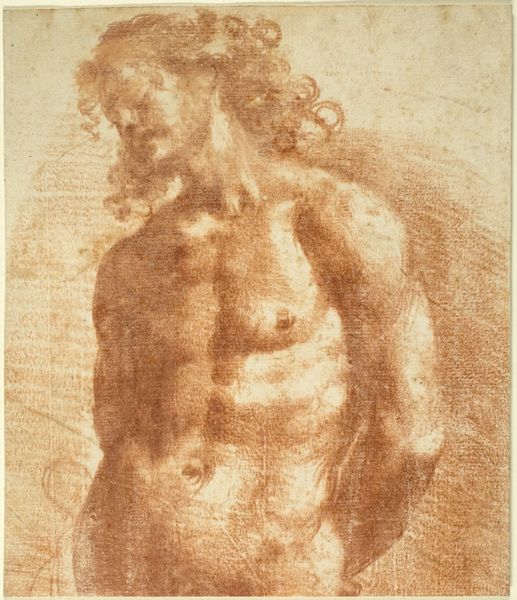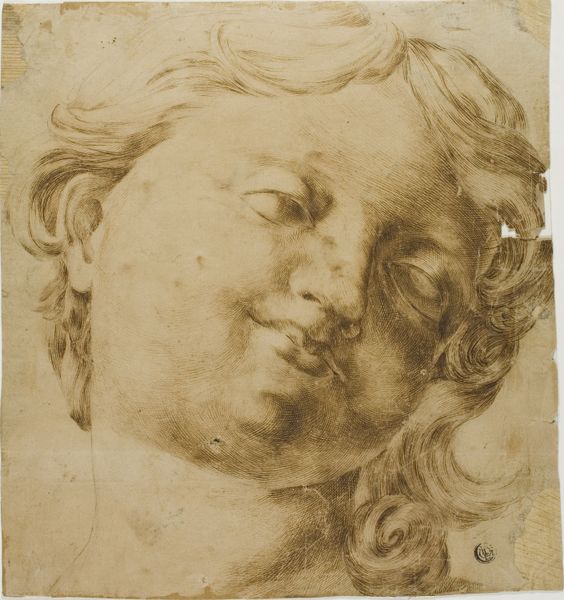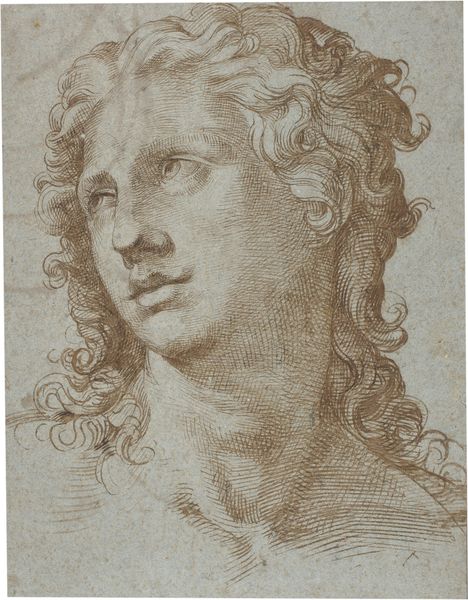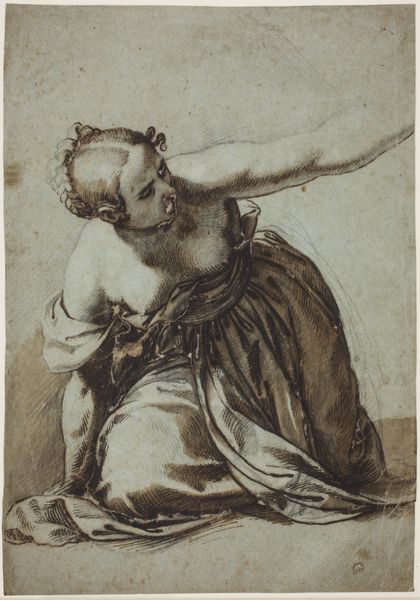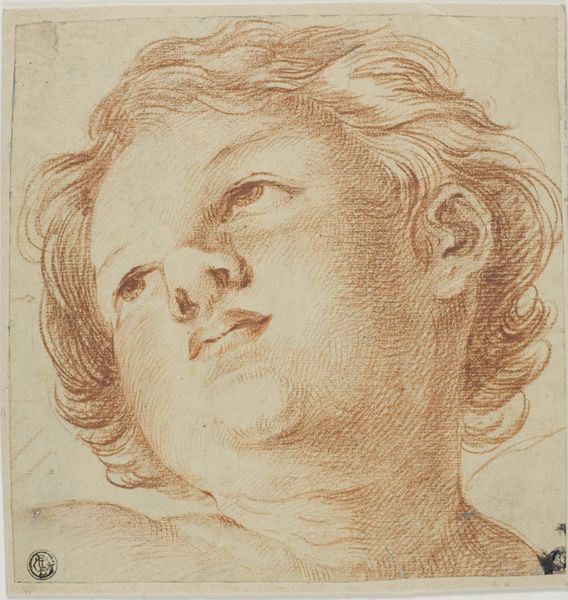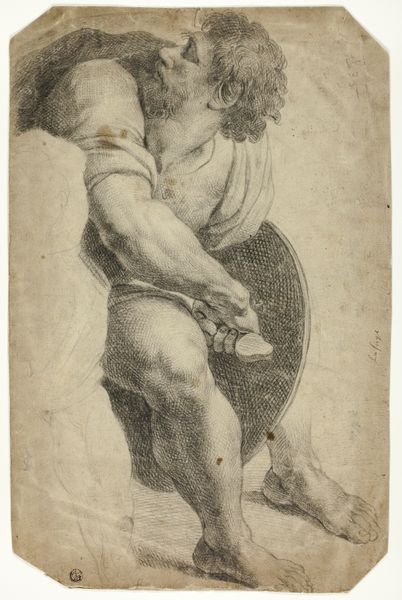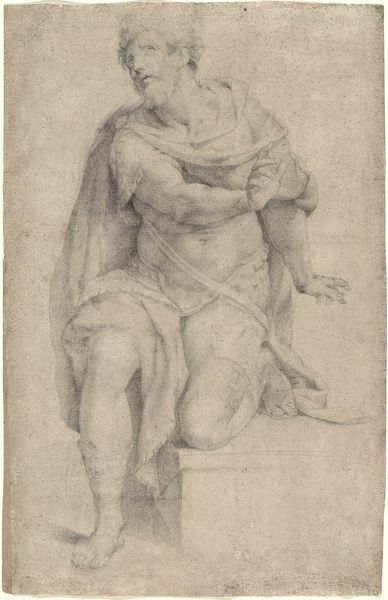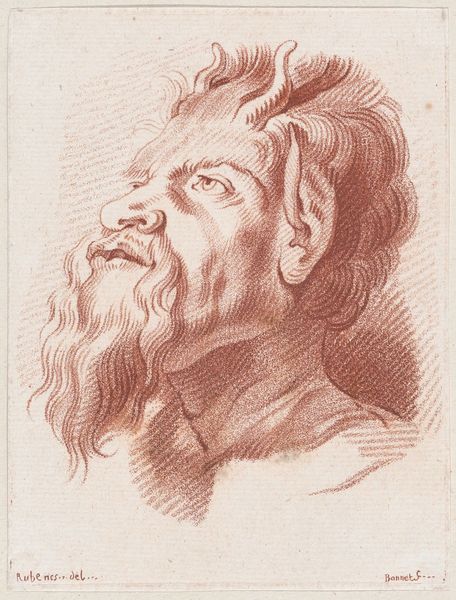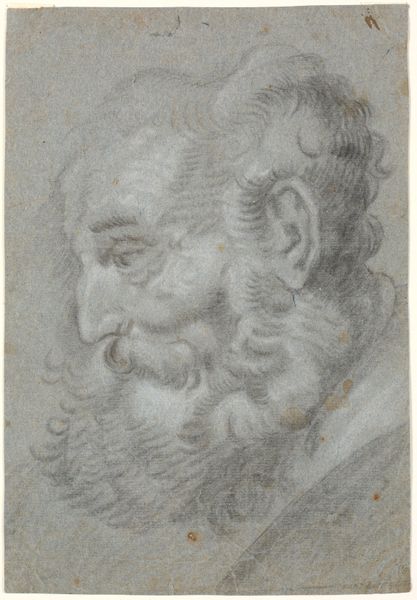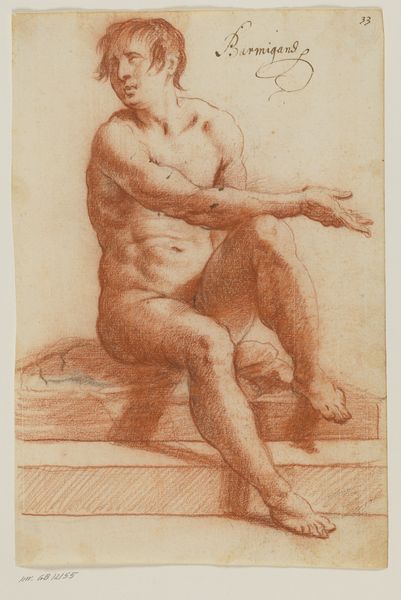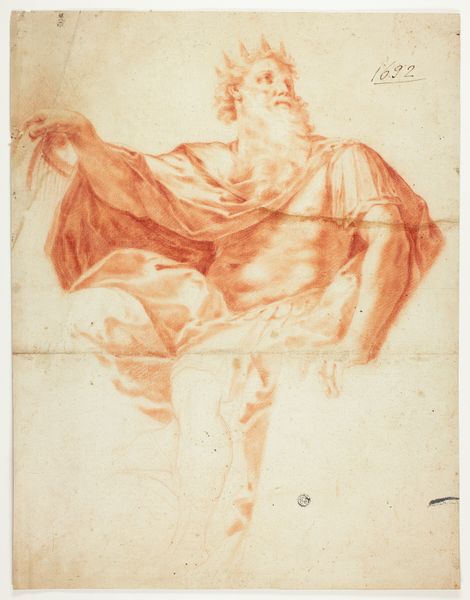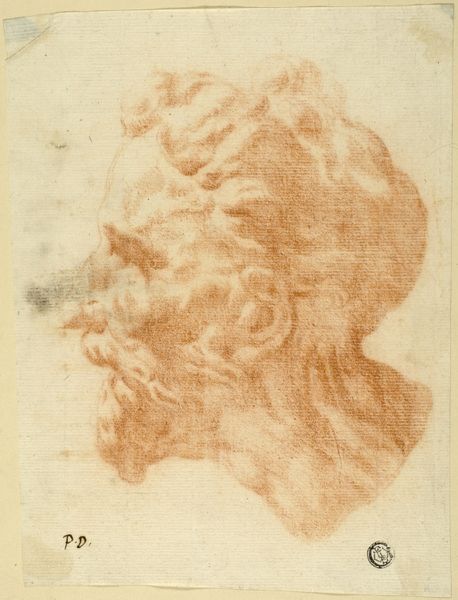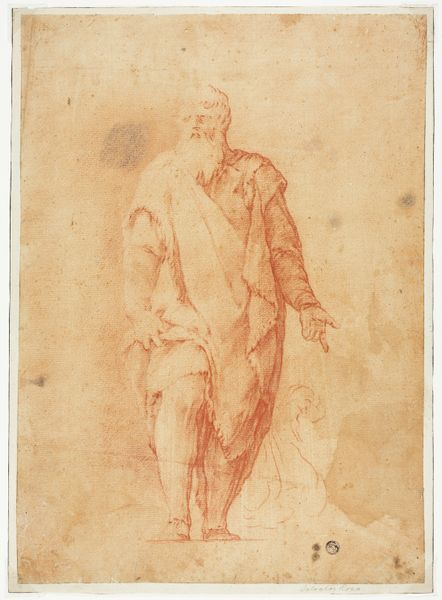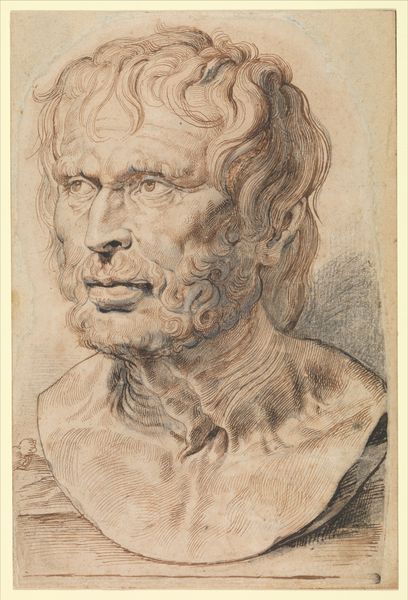
drawing, charcoal, frottage
#
portrait
#
drawing
#
baroque
#
charcoal drawing
#
figuration
#
form
#
line
#
portrait drawing
#
charcoal
#
charcoal
#
frottage
Dimensions: 386 mm (height) x 279 mm (width) (bladmaal)
Heinrich Dittmers made this bust of a faun, likely in the mid-17th century, using black and white chalk on paper. Chalk is an interesting material. It’s easily accessible, not particularly precious. Yet, it has an incredible capacity for rendering subtle tonal gradations, as we see here. The drawing's material directly influences its appearance. The chalk gives the faun a soft, almost dreamlike quality, despite his earthy subject matter. The texture of the paper also plays a role, subtly catching the chalk and creating a slightly grainy effect that enhances the sense of depth and volume. Dittmers was clearly skilled in draftsmanship, using cross-hatching and delicate blending to bring the faun to life. This kind of skilled labor, though less celebrated than other art forms, was essential to the artistic ecosystem of the time. Drawings like these were often studies for larger works, or independent works of art in their own right, and demonstrate the intense labor involved in art making. Recognizing the value and skill embedded in materials, making processes, and context, allows for a richer and more inclusive understanding of art history.
Comments
No comments
Be the first to comment and join the conversation on the ultimate creative platform.
